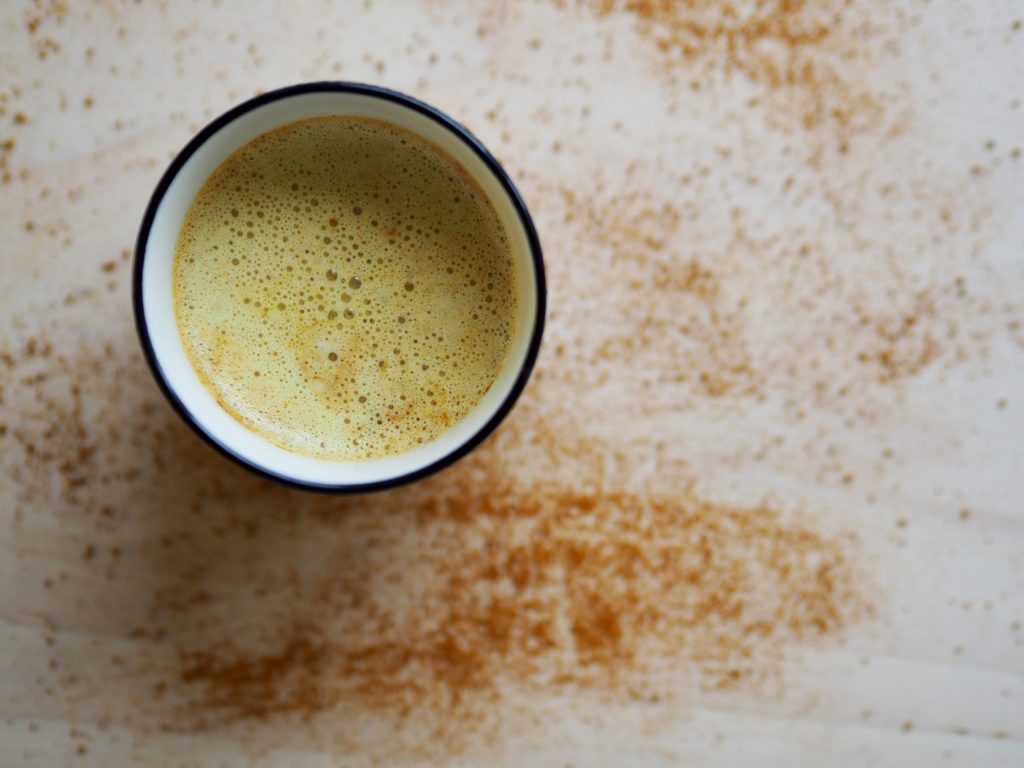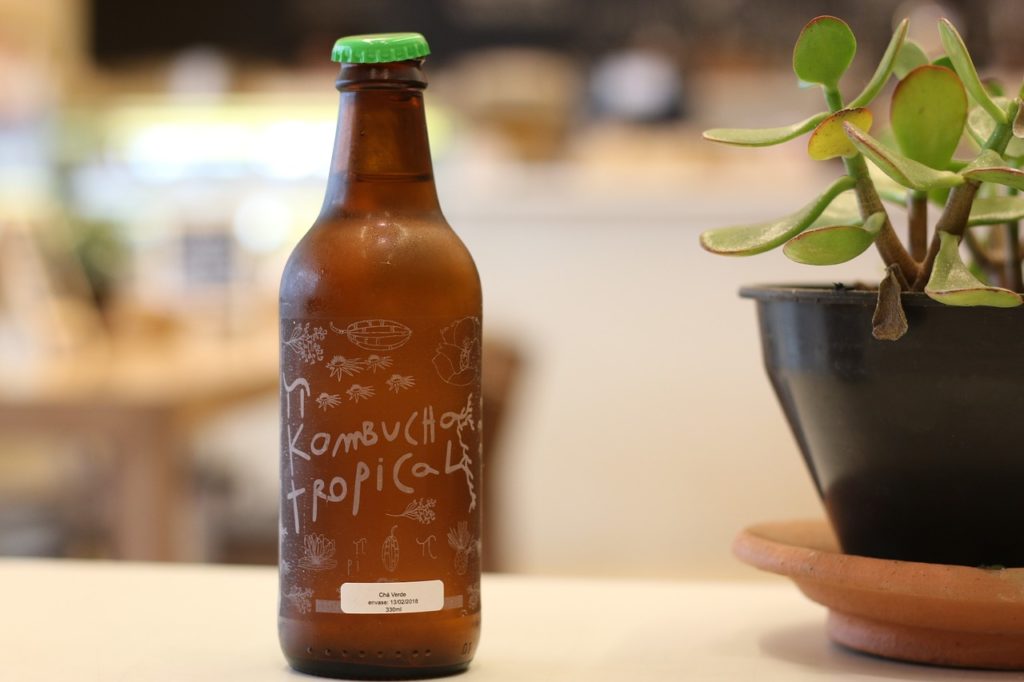
1. Turmeric Latte
A turmeric latte is a steamed milk beverage flavored with turmeric, nutmeg, cinnamon, and even ginger. Naturally caffeine-free, this anti-inflammatory drink promises to soothe your nerves.
A recent clinical study, backed by peer-reviewed research, confirms that turmeric may mitigate depressive and anxiety symptoms. As the study’s head researcher points out, “[turmeric] appears to elevate neurotransmitters such as serotonin, while lowering stress hormones, such as cortisol.”
In another 2017 meta-analysis, researchers found that turmeric intake did seem to ameliorate depressive symptoms and have a significant anti-anxiety effect.
Try whipping up a “golden latte,” as this drink is nicknamed, to relax after a long day at work. This recipe includes a bit of maple syrup to sweeten. Mmmm!
2. Green Tea
Used in traditional Chinese medicine to treat depression, green tea has long been known to improve mental outlook.
A 2009 study of elderly individuals shows an inverse relationship between depressive symptoms and consumption of green tea. In other words, the more green tea a participant drank, the less likely that person was to report feeling depressed. Another 2013 animal study suggests that green tea consumption may be linked to increases release of serotonin and dopamine, two “feel good” hormones that regulate mood.
Try a cup of hot, decaffeinated green tea and observe your mood and energy level afterward. You may also find the ritual of boiling water, pouring from the kettle, and steeping the tea to be a source of peace.
3. Chocolate Almond Smoothie
If you’re looking for an easy, 5-minute breakfast idea, this anti-anxiety smoothie is for you!
To prepare the smoothie:
- 2 large frozen bananas, sliced
- 1/4 c. almond butter
- 2 tbs. cacao powder
- 1/2 tsp. vanilla extract
- 1 c. unsweetened almond milk
- 3-4 ice cubes
Place all ingredients in the blender. Blend till smooth.
Cacao contains polyphenols that have an anti depressive -like effect on the human body’s nervous system. Cacao, in its many forms, is one of the richest sources of flavanol antioxidants, and the link between antioxidant supplementation and stress improvement is well-known.
Almond butter also contains a high amount of zinc which regulates the body’s anxiety level. There is a positive association between zinc deficiency and the risk of depression, according to empirical evidence. In a 2011 study, participants reported significantly less anxiety after increased zinc intake (i.e. zinc therapy).
4. Water
Fresh water might not be the most glamorous beverage on the market, but it is a healing one.
A large cross-sectional study in 2018 found an inverse association between plain water consumption and depression. While the exact bio-mechanisms behind this link are not clear, it may be because water enhances the release of positive endorphins throughout the body. These endorphins, in turn, maintain mood and well-being.
In addition, a 2012 study in The Journal of Nutrition found that mild dehydration affects mood in young, healthy women. When mildly dehydrated (1.36%), participants reported a “degraded mood, lower concentration, and headache symptoms.”
In other words, staying hydrated is one way to ward off depressive symptoms like moodiness, apathy, and negative emotions.
Try aiming for 2-3 liters of water, per day. If you find the taste of plain water to be bland, add a squeeze of lemon or fresh fruit. Cheers!


